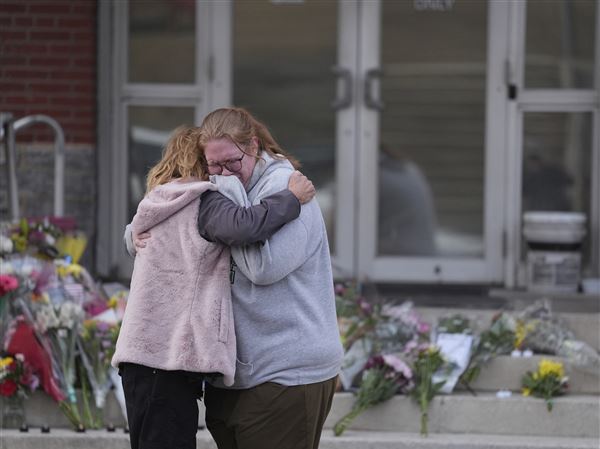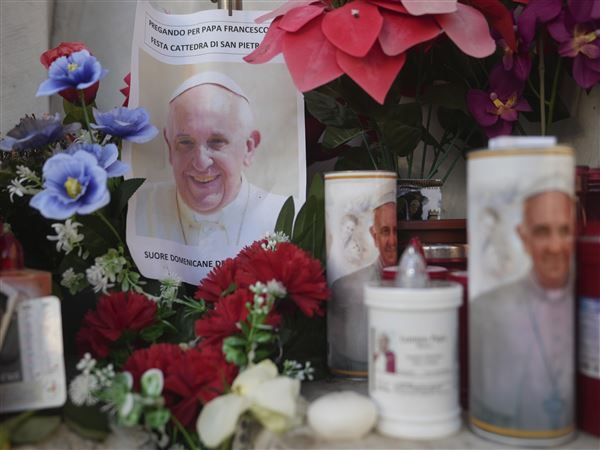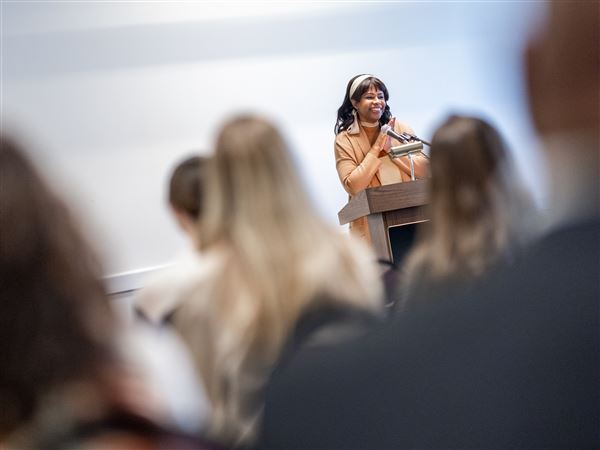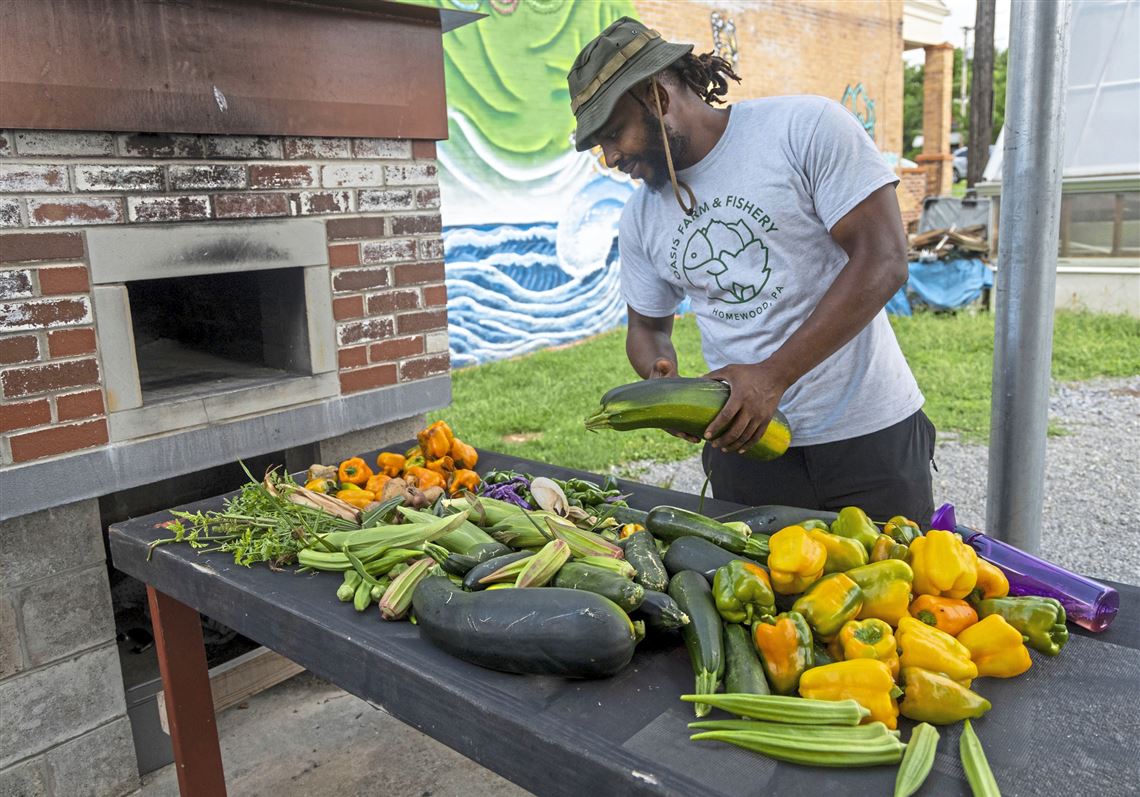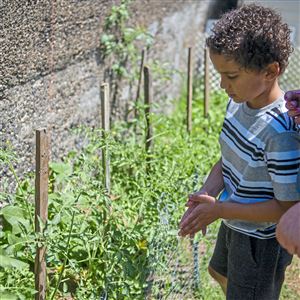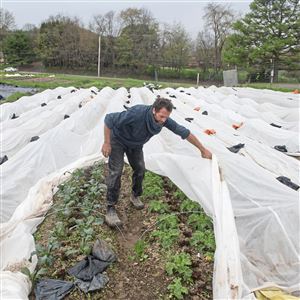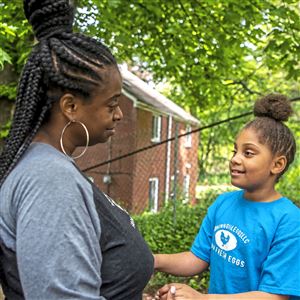Cynthia Wallace doesn’t mince words when asked to describe The Oasis Project, the community outreach and economic development arm of Bible Center Church in Homewood, where her husband, John, has served as pastor since 2004.
“We are here to make earth look like heaven,” she said, standing in a far corner of its signature educational initiative, Oasis Farm & Fishery, on Fleury Way.
She isn’t kidding.
Just last week, farm and education manager Tacumba Turner and others harvested nearly 100 pounds of produce in a single day from the lush urban vegetable garden that began in 2013 with just a few raised beds. Today, the well-tended city lot boasts a cornucopia of fresh summer vegetables. Along with tomatoes, cukes and sweet corn, it yields an abundant and colorful selection of yellow and green bell peppers, eggplant and zucchini as long and wide as a man’s forearm.
Much of the produce will find its way into Oasis’ “Better Food, Better Me” program that teaches community members how to choose and grow vegetables and then prepare them in healthful recipes. Some also is delivered to Homewood Children's Village and the Greater Pittsburgh Community Food Bank to serve local families.
Everyday Café, which is in its sixth year as a “coffee shop with a cause,” is another beneficiary. On a recent Monday, diners could find the farm’s hyper-local lettuce tucked into a stellar chicken club wrap along with slices of its tomatoes. Oasis Farm also contributes to the Homewood Farm Stand every Saturday from 10 a.m.-2 p.m. at Sankofa Village Farm on Susquehanna Street and Brushton Avenue.
And last year, Turner noted with delight, it started a community supported agriculture program to further increase Homewood residents’ access to fresh, quality vegetables and other healthy foods. It tripled its customer base to 13 people with scaled subscriptions this summer.
Of particular pride is the African American heritage garden, which includes crops that either originated in Africa or became important staples in the new world — bitter collards, turnip greens and mustard, okra, watermelon and cabbage along with Lagos spinach and Jamaican callaloo. All are grown from seed from Philadelphia-based Truelove Seeds’ African Diaspora Collection.
“We survey our customers to see what to grow,” Turner said, though that’s not always a win-win proposition. Last year, the farm couldn’t grow enough cauliflower or broccoli to keep up with demand so ended up taking it out of rotation.
The farm also includes a one-of-a-kind greenhouse in which lettuce, herbs and other seedlings spring to life in as little as 30 days. Constructed in 2016-2017 in partnership with the University of Pittsburgh’s Business of Humanity project, the passive solar bioshelter not only provides a system for growing vegetables hydroponically (in water without soil) but also includes an aquaponics unit growing catfish in a closed system. Their waste helps fertilize the produce grown there year-round.
Newer projects include a “forest garden” of 30 trees planted across the street from the farm and an outdoor kitchen with a brick pizza oven under a 24-panel solar canopy,
Food injustice and apartheid — the food access disparities created and perpetuated by historical patterns of structural racism — are very important to the 28-year-old, who received his horticulture technology diploma from Bidwell Training Center in 2016 and became farm manager in 2019.
“The food system is ill-equipped to provide food to everyone in a just way,” he said, particularly in low-income Black communities like Homewood. Oasis Farm & Fishery aims to help level the playing field by enhancing residents’ access to fruits and vegetables while also showing community members how to grow and prepare them “and lead healthier lives,” he said. “That’s the heart of it.”
It’s not just an asset for Homewood. Last week, a group of foreign exchange students from Japan were among the many visitors Turner led on a farm tour to learn about the aquaponics system and other technologies used to grow food in urban locations. As an added bonus, they got to “get busy” in the garden helping to harvest the day’s haul.
Homewood, Wallace said, “needs intervention.” Which is why the former school principal and her husband, Pitt’s vice provost for faculty diversity and development, launched the Oasis Project back in 2011 to promote development and address the disparities in opportunities for its youth.
What started as an after-school soccer program for a handful of kids now boasts seven programs (including the farm and fishery) with 15 full-time and more than 30 part-time employees. It’s funded by local foundations and private donations along with grants from agencies like the Pittsburgh Urban Redevelopment Authority and Allegheny County Department of Human Resources.
Programs teach everything from property management/maintenance to “Own Our Own” businesses and transportation services. They also include the aforementioned cafe and a shared-use, 3,200-square-foot community kitchen for budding food entrepreneurs that Chatham’s Center for Regional Agriculture, Food and Transformation was instrumental in developing. It’s located inside the lower level of a former Rite Aid on Homewood Avenue.
Over the past decade, “Pastor Cynthia,” as Wallace is affectionately known, and others also have converted a crack house into offices and an education space and two vacant lots into an outdoor classroom and playground brightened in 2021 by an 850-square-foot mural by Pittsburgh artist Juliandra Jones. An early learning center is on the horizon in 2023, said Wallace, along with a hoop house to extend the garden’s growing season; it will be built in partnership with Pitt’s Swanson School of Engineering.
“We want to expose [the kids] to opportunities to help spread into their future with experiences to be successful,” Wallace said.
Some kids have enjoyed their time so much that they want to come back even after they’ve aged out of the program. A handful have ended up as employees — an affirmation Wallace calls “the ultimate customer satisfaction.”
This year’s recently completed Green STEAM & Play summer camp program, offered through Oasis’ The Maker’s Clubhouse, drew dozens of neighborhood kids from nearby Faison and Lincoln elementary schools. Staff expect even more children to take advantage of Oasis’ free after-school program, which offers tutoring and mentoring along with meals and homework help.
Alesha Thornton is one such happy customer. Participating for the second year in a row, the 11-year-old was all smiles on a recent Thursday after learning how to make everyone’s favorite treat — vanilla ice cream — under student instructor Mya Green’s careful eye with just three ingredients and a whole lot of elbow grease.
After carefully placing a plastic bag containing half-and-half, sugar and vanilla inside a bigger bag with filled with ice and squeezing out the air, the tween added some salt and then got down to business — shake, shake, shake and shake some more until the liquid hardens into a mixture resembling soft serve.
“This is my favorite thing,” Alesha exclaimed after tasting her handiwork. Then again, she said, everything she did this summer at camp was a blast “and the people here are very nice.”
Fellow camper Jae’mere Dupree, 10, shook his head in agreement. “I’m learning how to actually do it and so when I don’t have any, I’ll just make it. It’s fun!”
Green, 21, a student in Chatham’s Falk School of Sustainability & Environment, jumped at the chance to intern with the Oasis Project this summer because it allowed her to put everything she’s learned over the last four years into practice. Along with gardening lessons, hands-on STEAM activities and character development lessons, kids learned basic culinary skills through a few easy recipes.
“The more they’re involved, the more they understand the process,” said Green, especially when it comes to trying foods they’re not familiar with.
Working in a group setting, she added, helped the kids build community. That’s one of Bible Center’s primary missions.
Student teaching also helped Green see what her degree, which combines education and agriculture with the business of nonprofits, might lead to professionally when she graduates in December.
Coming off the grief and loss of the pandemic, Wallace said a lot of this year’s educational focus was on social and emotional learning under The Oasis Project’s new youth services coordinator, Kelli Organ.
“We try to be full service,” she said.
Gretchen McKay: gmckay@post-gazette.com, 412-263-1419 or on Twitter @gtmckay.
First Published: August 23, 2022, 10:08 a.m.
Updated: August 24, 2022, 12:05 p.m.
